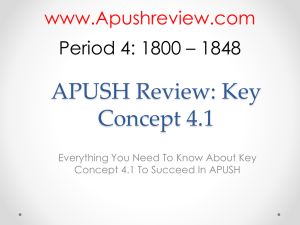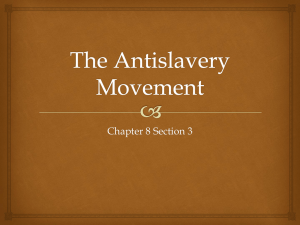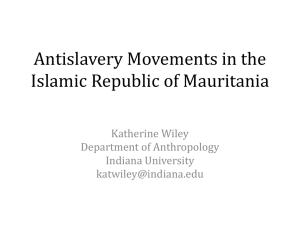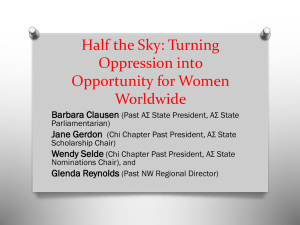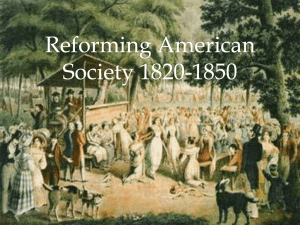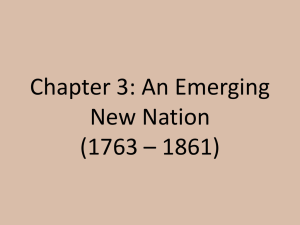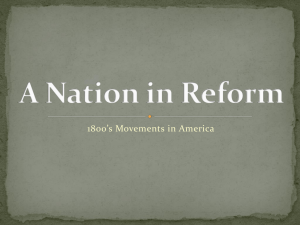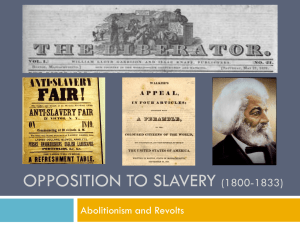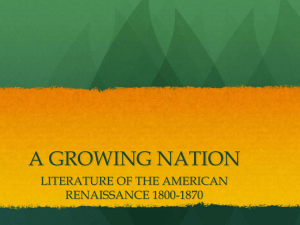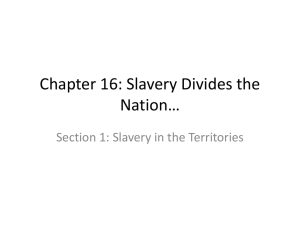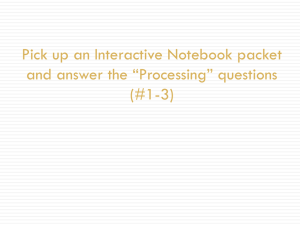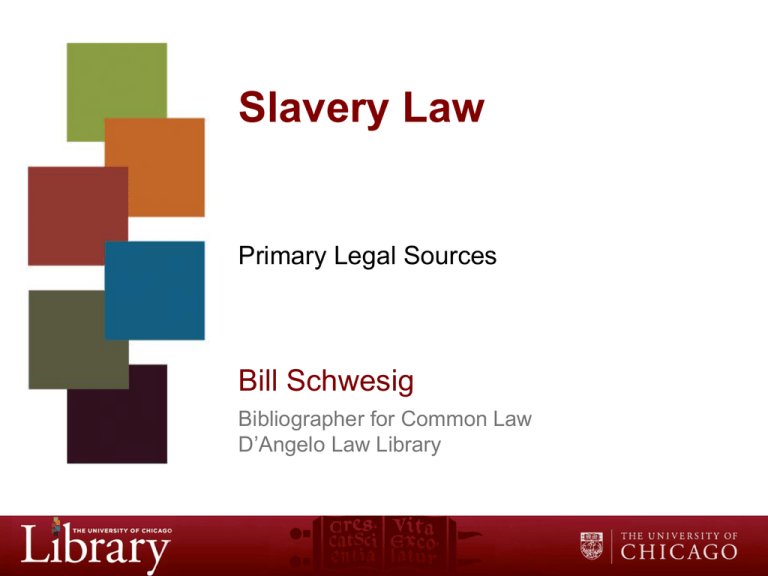
Slavery Law
Primary Legal Sources
Bill Schwesig
Bibliographer for Common Law
D’Angelo Law Library
Statutes
Published as
Slip laws/pamphlets
Session laws
Statutes at large
Codified laws
Statute Sources
LexisNexis
Laws in force, with case annotations
Hein Online
Federal and State Session Laws
Includes colonial and territorial laws
LLMC Digital
Mainly session laws
Making of Modern Law: Primary Sources
Compilations of laws, municipal ordinances,
constitutional conventions
Slavery Statute Compilations
State slavery statutes UPA Academic Editions, c1989.
Microfiche with print guide.
microfcXXKF4545.S5A3 1989 D'Angelo Law, Microforms
Paul Finkelman (ed.), Statutes on slavery : the pamphlet
literature. Garland (1988) XXKF4545.S5A50 1988 ser.7
Regenstein Bookstacks, D'Angelo Bookstacks
Courts of Record
Supreme Court
Lower Appellate Courts
Names vary: Court of Appeal, Court of Errors
LexisNexis
LLMC Digital state reports, Federal Cases
D’Angelo Law Library Annex
Scan and Deliver
Legal Citations
Volume + reporter + page + court* + year
Sanders v. Ward, 25 Ga. 109 (1858)
[State’s name alone means highest appellate court.]
Early US Supreme Court cases include citations to US
Reports and original nominative reports.
Scott v. Sandford, 60 U.S. 393; 19 How. 393 (1857)
The citations in very old sources are to nominate reports that
are now cited as volumes of Alabama Reports, Tennessee
Reports, etc. Suggestion: Search by Case Name on
LexisNexis
Finding Cases
LexisNexis is useful
Digests are not very useful
Legal issue may involve slavery per se
Secondary Sources and collections
Paul Finkelman, Slavery in the courtroom : an annotated
bibliography of American cases. Library of Congress (1985) /
by Paul Finkelman. XXKF4545.S5A1230 1985 D'Angelo
Bookstacks, Regenstein Bookstacks
Jacob D. Wheeler, A practical treatise on the law of slavery.
(1837) Available as an ebook.
Making of Modern Law: Legal Treatises 1800-1926
Slavery Case Law Collections
Slavery, race, and the American legal system, 17001872, edited by Paul Finkelman
Contents: I. Southern Slaves in Free State Courts; II. Fugitive
Slaves and American Courts; III. Abolitionists in Northern Courts; IV.
Statutes on Slavery; V. Free Blacks, Slaves and Slave-owners in
Civil and Criminal Courts; VI. The African Slave Trade and American
Courts; VII. Slave Rebels, Abolitionists and Southern Courts.
XXKF4545.S5A50 1988 D’Angelo Bookstacks, Regenstein
Bookstacks
Trial Courts
Superior Courts
County and Municipal Courts
Law and Chancery
Modern Trial Records
Complaint or indictment
Docket sheet
Motions
Orders
Final order or memorandum of opinion
Verbatim transcript
Many/all documents filed electronically
Closed cases transferred to records facility or archive
Historical Court Records
Limited records
Dockets
Minutes
Case name indexes
Located at State Archives
Not all records survive
Identifying trial level cases
Appellate cases
Published trials
Making of Modern Law: Trials
Hein Online World Trial Library
News accounts
Court record indexes
State Archives finding aids
Ancestry Library Edition
FamilySearch.com
Digital Collections
Library of Congress
Slaves and the Courts, 1740-1860
From Slavery to Freedom … 1822-1909
Slavery Resource Guide
Yale Libraries
Slavery and Abolition Portal
Researching Race in the American Trials Collection
Slavery in Illinois
Northwest Ordinance of 1787.
Art. 6. There shall be neither slavery nor involuntary servitude in the
said territory, otherwise than in the punishment of crimes whereof the
party shall have been duly convicted: Provided, always, That any
person escaping into the same, from whom labor or service is lawfully
claimed in any one of the original States, such fugitive may be lawfully
reclaimed and conveyed to the person claiming his or her labor or
service as aforesaid.
Did not emancipate slaves that had already been brought into
the territory.
Map
Illinois Constitution of 1818
Allowed indentured servitude (as criminal sentence) and
slave labor in mines
1840 Census still listed slaves in Illinois
Constitution of 1848 abolished slavery in Illinois, but did
not give equal civil rights to blacks
Constitution of 1870 eliminated all Constitutional legal
disabilities of blacks
Black Codes
Since 1813, the Illinois Territory excluded free Negroes. 1813
[Ill Terr Laws 17]
The State’s First Black Law was passed at the first session of
the General Assembly [1819 Ill Laws 354]
Blacks without a certificate of freedom were deemed runaway
slaves, and forbidden to enter the state.
A more severe Black Law was enacted in 1853, forbidding
blacks from another state to remain in the state for more than
10 days. [1853 Ill Laws 57]
Illinois Black Codes (illustrated article)
Repealed in 1865, after the ratification of the 14th Amendment
to the U.S. Constitution
Later Developments
Fugitive Slave Act of 1850
Colonization movement
Dred Scott
Lincoln-Douglas Debates
Illinois State Archives: Illinois Servitude and
Emancipation Records (1722–1863)
45
40
35
Row6
30
Row5
25
Row4
20
Row3
15
Row2
10
Row1
5
0
Bar1
Bar2
Bar3
Bar4
Bar5
Bar6
Heading
Slice6
17%
Slice1
16%
Slice5
17%
Slice2
16%
Slice4
17%
Slice3
17%
Text box (delete if not needed)
Text
Text
Text
Text
Text
Text
Text
Text
Text
Text
Text
Text
T
T
T
Text
• Text
Text
• Text
Text
• Text
• Text
Title
text
text
text
text
text
text
Text
• Text
• Text
Text
• Text
• Text
Text
• Text
• Text
Text Goes
Here
Text
Text
Text
Text
Text
Text
Text
Text
Text
Text
Text
Text
Text
Text
Text
Text
Text
Text
Text
Text
Text
Text and
more text
Title1
Title2
Title3
Text
Text
Text
Text
Text
Text
Text
Text
Text
Text
Text

